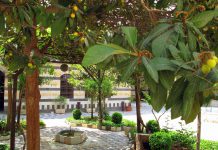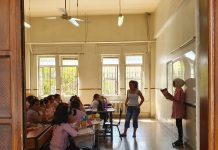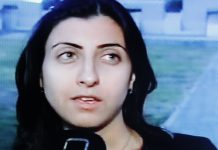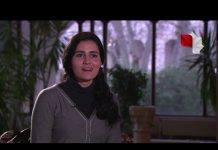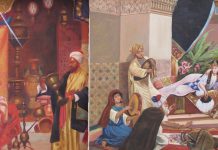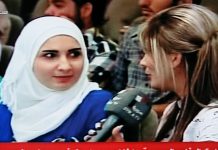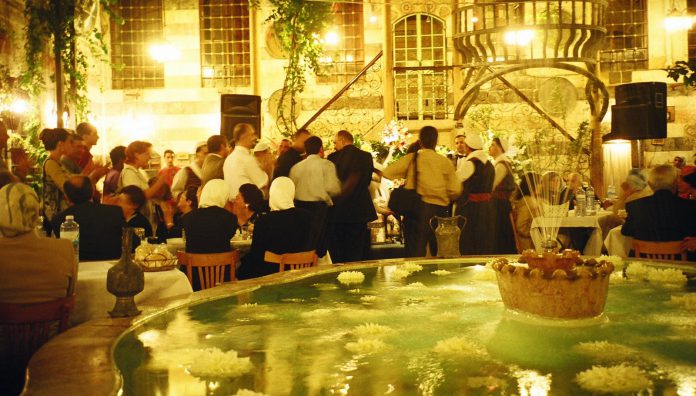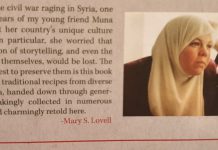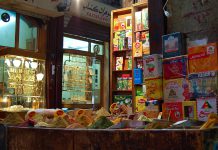I have no power
By Nizar Qabbani
translated by Norma Medawar
I have no power to change you
Or explain your ways…

Don’t believe a man can change a woman
and the claims of men fancying that
woman comes from one of their ribs are false…
Woman never emerges from a man’s rib….
It’s he who emerges from her pelvis
like a fish rising from a basin of water
he branches from her womb
like a brook branches away from a river…
It’s he who orbits around the sun of her eyes
and believes he is fixed in place…
I have no power to tame you
or domesticate you…
or refine your first instincts
It’s an impossible mission …
I have tried my intelligence on you …
also my dumbness …
Neither guidance nor temptation worked with you…
Stay primitive as you are …
I have no power to break your habits
For thirty years you have been like this
three hundred years …
three thousand years …
A tornado trapped in a bottle …
A body sensing a man’s scent by instinct …
attacks him by instinct …
comes over him by instinct …
Never believe what a man says about himself,
that he is the one who composes poems …
and makes children…
It’s the woman who writes the poems …
and the man who signs his name to them …
It’s the woman who bears the children…
and the man who signs at the maternity hospital
that he is the father …!!
I have no power to change your nature …
My books are of no use to you …
and my convictions do not convince you …
nor does my fatherly advice do you any good …
You are the queen of chaos, of madness, belonging to no one
Stay that way …
You are the tree of femininity, that grows in the darkness …
needs no sun or water …
You are the sea princess who has loved
all men and has loved no one
Slept with all men…
and slept with no one …
You are the Bedouin woman, who went with all tribes,
and returned a virgin …
Stay that way …
About Author
Nizar Qabbani – Poet, feminist and revolutionary
Someone highly revered by Syrians across the political spectrum is Nizar Qabbani, the 20th century Syrian poet. Nizar Qabbani was born in Damascus in 1923. His father was a businessman, who was frequently arrested because of his anti-French activities. (After the First World War, Syria came under the control of France, and opposition to French rule was brutally crushed.)
As the son of a Syrian nationalist, Nizar Qabbani couldn’t but be political. In 1954, one of his most famous poems, ‘Bread, Hashish, and the Moon,’ was debated in the Syrian parliament, with some delegates contending that legal action be taken against the poet.
However, as well as expressing despair in his writing, Qabbani’s poetry is also romantic and elegant and accessible to a general reader.
Most importantly for this issue of Beloved Syria is the fact that Nizar Qabbani wrote poetry with respectful reference to women and their point of view. When he was a teenager, Qabbani’s family tried to force his sister to marry someone she did not love. As a consequence, she committed suicide, which may explain why Qabbani became a strong advocate for women’s emancipation.
His poem ‘I have no power’ translated on these pages was being recited in the Middle East when across other parts of the world Sophie Loren was on cinema screens playing women of great independence and seductive power. Loren could certainly play the woman Qabbani describes in ‘I have no power’. But is the poem really about a woman? It might be argued that it expresses the poet’s response to the contrary nature of his country. With Qabbani’s poetry, there can be ambiguity and puzzle, which only adds to the delight and depth of it. A poet of his calibre can hold his readers in thrall as he explores the contradictions and frustrations of life and at other times points to life’s extraordinary beauty. Asked if he was a revolutionary, the poet answered:
“Love in the Arab world is like a prisoner, and I want to set [it] free. I want to free the Arab soul, sense and body with my poetry. The relationships between men and women in our society are not healthy.”
At the back of Beloved Syria is Qabbani’s poem ‘My Country’, which takes up another theme touched on in this magazine.
In my country the rocks are
in love, and the vines
are addicted
Our country was there … and
all times came after it.
This revolutionary used a pen not a sword, and Nizar Qabbani’s fearlessness shines in his writing still.
By Susan Dirgham

